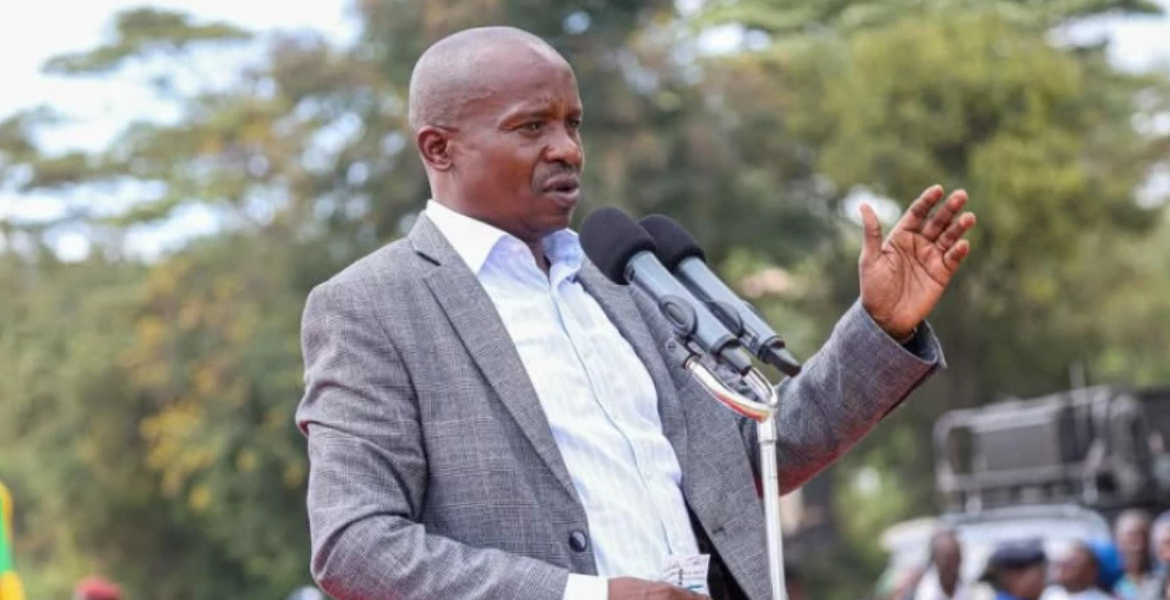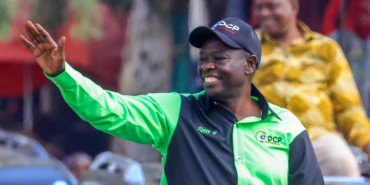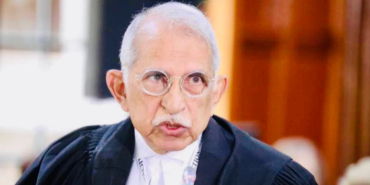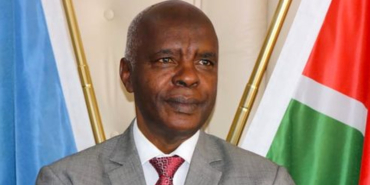Over 100 Ukambani MCAs Break Ranks with Wiper to Back Kenya Kwanza Government

Deputy President Kithure Kindiki's recent development tour of the Ukambani region has ignited political tensions, exposing fractures within the opposition and intensifying the competition for regional influence as the 2027 general election looms.
The tour, which spanned three weeks, saw Prof Kindiki and a delegation of President William Ruto's allies visit Machakos, Kitui, and Makueni counties, culminating in women's and youth forums in Mitaboni and Nguni. The stated purpose of the tour was to promote grassroots empowerment and pledge government support for regional development. Promises included infrastructure upgrades, rural electrification projects, and targeted assistance for agriculture, with a focus on crops such as pigeon peas, cowpeas, and citrus fruits, staples of the semi-arid Ukambani region that have historically received limited government support.
Prof Kindiki announced plans to convene a major farmers' summit to align local agricultural priorities with national policy. However, analysts suggest the tour's underlying objective is to undermine the political dominance of Wiper leader Kalonzo Musyoka in his traditional stronghold, and to pre-empt the potential alliance between Kalonzo and former Deputy President Rigathi Gachagua. Recent reports indicate that Kalonzo and Gachagua have positioned themselves as regional powerbrokers for Ukambani and Mount Kenya respectively, with speculation suggesting a possible joint presidential bid.
Sources indicate that President Ruto's camp is keen to disrupt this trajectory.
The political stakes were underscored by the public declaration of over 100 Members of County Assembly from the three Ukambani counties, expressing their willingness to collaborate with the Kenya Kwanza administration. This show of support for the government, seen as defiance against Kalonzo's leadership, has been interpreted as a strategic manoeuvre to fracture the opposition's base and dilute the influence of the Wiper party in the region.
Machakos Governor Wavinya Ndeti, a close ally of Kalonzo, responded by calling for political unity, urging the region to "weed out madoadoa", a pointed reference to perceived defectors. Her remarks reflect growing unease within the Wiper establishment over the shifting allegiances of local leaders, some of whom have openly embraced Prof Kindiki's overtures. Mavoko MP Patrick Makau has emerged as one of the most vocal critics, launching a scathing attack on Mr Gachagua, accusing him of authoritarianism and political opportunism.
Supporters of Mr Makau recently staged protests in Athi River, denouncing what they described as Mr Gachagua's disrespect and interference in local politics. The former deputy president, now leading the Democracy for Citizens Party, responded with inflammatory rhetoric, vowing to "kill the snake and its eggs", a metaphor widely interpreted as a threat to purge dissenters within the opposition ranks.
Despite the acrimony, Mr Makau has expressed support for the empowerment initiatives spearheaded by Prof Kindiki, signalling a nuanced position that separates development cooperation from political loyalty.
Other leaders, including Mwingi West MP Charles Nguna and Taveta MP John Bwire, have also distanced themselves from Mr Musyoka's alliance with Mr Gachagua, citing concerns over its strategic value. The defection of Kitui Speaker Kelvin Kinengo and Machakos Speaker Anne Kiusya to the government's side further highlights the erosion of Wiper's grip on the region. Ms Kiusya, in a pointed rebuke to Kalonzo, declared her departure from his camp as final. Meanwhile, Wiper-nominated MCA Jacklin Kalenga has drawn attention for her public praise of President Ruto and the Deputy President during one of the forums.








Add new comment